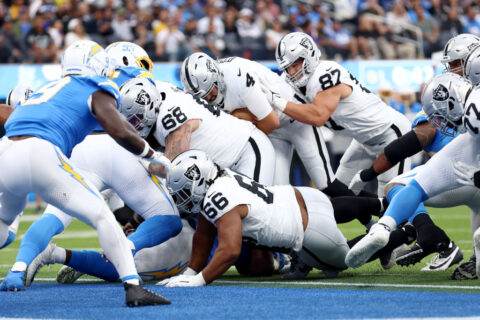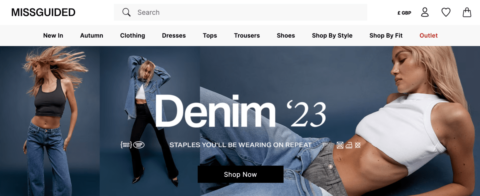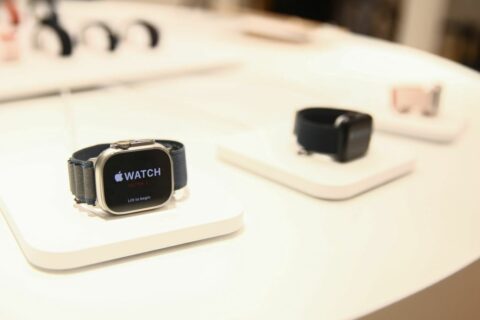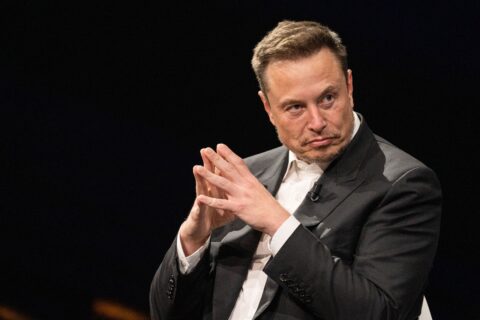Shield AI has raised $200 million in new funding as it looks to scale its autonomous flying systems for the U.S. military and its allies. The startup, which […]
Existential risk? Regulatory capture? AI for one and all? A look at what’s going on with AI in the UK
The promise and pitfall of artificial intelligence is a hot topic these days. Some say AI will save us: it’s already on the case to fix pernicious health […]
With deadline looming, Broadcom tries to push $61B VMware deal over finish line
Broadcom announced its intention to buy VMware for $61 billion in May 2022. After clearing a number of regulatory hurdles including the U.S., UK and European Union, it […]
Shein adds struggling UK brand Missguided to its fashion empire
Shein, the fast fashion giant that has thrived on its nimble supply chain in China, is expanding its product range by scooping up competitors. In a statement released […]
Cruise hits the brakes on driverless, UAW makes progress and more EV backpedaling
The Station is a weekly newsletter dedicated to all things transportation. Sign up here — just click The Station — to receive the newsletter every weekend in your inbox. Subscribe for […]
Apple Watch imports to the U.S. may get banned — 3 reasons why
Apple’s signature smart watch may face some hurdles in getting imported to the U.S. soon.

Not even Apple is immune to international trade regulations.
The U.S. International Trade Commission (ITC) issued an order that could prohibit Apple from importing Apple Watches to the United States, according to Reuters. The devices have been manufactured in China and Vietnam in recent years.
Why Apple Watch imports may be banned in the U.S.
You may be wondering how could Apple, arguably the most prominent tech company in the U.S., could find itself in such a sticky situation? Allow us to break down why the popular wearable from the Cupertino-based tech giant is potentially in jeopardy.
1. Infringement of a medical tech company
At the root of all this is a medical tech company called Masimo. In January, a U.S. judge ruled in Masimo’s favor regarding Apple’s infringement on a Masimo patent for “light-based pulse oximetry functionality and components,” according to a Reuters report. The layman’s terms, this feature is blood-oxygen tracking, which was introduced alongside the Apple Watch Series 6 launch.
This actually isn’t the first time Apple has been found in violation of another company’s patents, specifically with Apple Watch. Last December, the ITC ruled that Apple infringed upon patents held by a company called AliveCor with the Apple Watch’s electrocardiogram (ECG) tech, though that particular ban order is currently on hold.
2. Failure of a presidential veto
Obviously, Apple’s alleged wrongdoing is the chief reason why Apple Watch imports may be banned. There is a way out for Apple, though it’s not a dependable one.
According to Reuters, the Biden administration has 60 days to issue a veto to the import ban order. However, this rarely happens, and so far, there’s no indication that it will occur this time. Apple can only cross its fingers and hope for the best on that front.
3. A rejection of Apple’s appeal
That said, there is one more potential out for Apple in this case. Once that 60-day review period is over, Apple is free to file an appeal, as is the norm with legal cases like this.
But obviously, it’s way too early to tell if Apple’s appeal (and the company said it will continue efforts to appeal in a statement to Reuters) will work. It’s also impossible to know, at this moment, which Apple Watch models would be impacted by this ban order if it does go through. These things take time.
In the meantime, Apple should maybe find a way to implement new features without allegedly infringing on other company’s patents.
Elon Musk to employees: In a year, X could replace bank accounts
In an all hands call with employees, Elon Musk shared his vision of X/Twitter becoming an all-encompassing finance hub.

Elon Musk plans to turn X, formerly Twitter, into an all-encompassing financial hub that will fully replace the need for banks. And he plans to do it in a year’s time.
Musk shared his ideas in an all-hands call with employees on Thursday. The Verge heard the call’s audio recording and was the first to report it.
Musk plans to pivot X into fintech
Musk shared his ideas about offering several financial services on X before. In fact, he said it in his very first meeting with Twitter employees, but it looks like his ambitions have continued to grow.
“If it involves money. It’ll be on our platform. Money or securities or whatever. So, it’s not just like ‘send $20 to my friend.’ I’m talking about, like, you won’t need a bank account,” he said on Thursday. “It would blow my mind if we don’t have that rolled out by the end of next year.”
It’s no secret that the somewhat hasty rebranding of Twitter harkens back to X.com, Musk’s online banking project that merged with Confinity in 2000, which later became PayPal. And Musk believes his original vision for X.com is still feasible.
“The X/PayPal product roadmap was written by myself and David Sacks actually in July of 2000,” he said. “And for some reason PayPal, once it became eBay, not only did they not implement the rest of the list, but they actually rolled back a bunch of key features, which is crazy.”
In other words, loans, debit cards, savings – as well as the ability for users to send money to each other regardless of where they are – may all be under X’s umbrella one day.
In a recent blog post, CEO Linda Yaccarino briefly mentioned payments. “We want money on X to flow as freely as information and conversation. We have already secured first money transmitter licenses in several states, and we are moving toward launching a global payment system – more soon,” she wrote.
Musk’s ideas don’t sound that otherworldly when you consider services such as WeChat, a China-based social media platform that also offers money transfers, payments, and other financial services. But it might be a tall order given that X’s daily active users are reportedly plummeting. Additionally, convincing users to switch to its paid tier has been challenging.
X claims that Premium subscribers spend three times longer on the platform than non-subscribers. Perhaps tellingly, the company doesn’t mention how many Premium subscribers have signed up so far.
Xpeng starts removing HD maps from Tesla FSD-like feature in China
Xpeng is often called the Chinese challenger to Tesla for its efforts to bring advanced driving capabilities to its electric vehicles. It’s now getting a step closer to […]
Two years after pausing service, Roblox China cuts a small number of staff
Roblox China was once full of promise. Since its localized platform, which is a joint effort with Tencent, abruptly halted operation nearly two years ago, the company has […]










